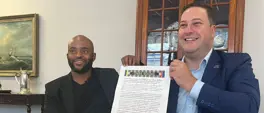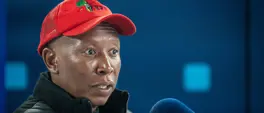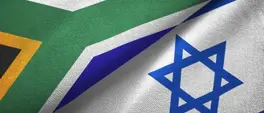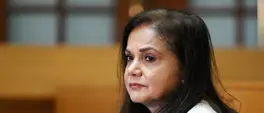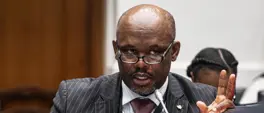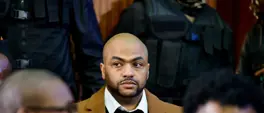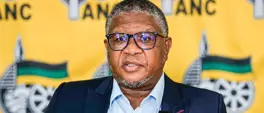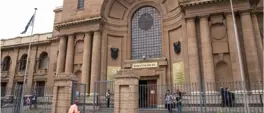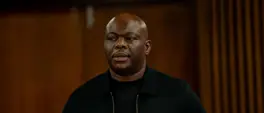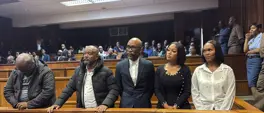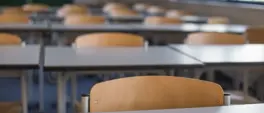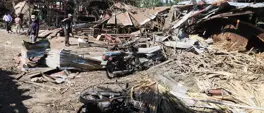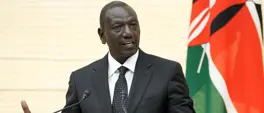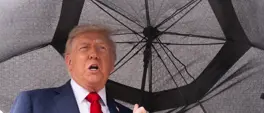Trump claims 'win' as NATO agrees massive spending hike
AFP
26 June 2025 | 4:09Trump cut a jubilant figure after NATO's 32 countries agreed to his headline target of five percent of GDP on defence spending following two days of talks in The Hague.
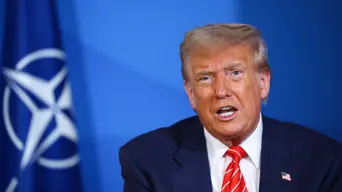
US President Donald Trump meets with NATO Secretary General Mark Rutte (not pictured) during the NATO summit of heads of state and government in The Hague on 25 June 2025. Picture: Piroschka Van De Wouw/POOL/AFP
THE HAGUE - NATO countries agreed Wednesday to massively ramp up their defence spending to satisfy US President Donald Trump, who hailed it as a "monumental win" for America - and reaffirmed his country's commitment to protect its European allies.
Trump cut a jubilant figure after NATO's 32 countries agreed to his headline target of 5% of GDP on defence spending following two days of talks in The Hague.
Taking credit for a "fantastic" outcome that "no one really thought possible", Trump described the spending hike as "a monumental win for the United States".
Trump also signed off on a final declaration confirming an "ironclad commitment" to NATO's collective defence pledge that an attack on one is an attack on all - a reassuring move for European countries worried about Russia.
The US leader has repeatedly suggested Washington could withhold protection from European countries unwilling to spend more on defence.
The compromise hatched by NATO sees countries promise to dedicate 3.5% of GDP to core military spending by 2035, and a further 1.5 to broader security-related areas such as infrastructure.
Spain had been refusing to agree and while it signed the pledge it has said it thinks it can fulfil NATO's demands while spending less - Trump threatening on Wednesday to hit its trade interests in response.
But the pledge endorsed in The Hague allows Trump to claim triumph, while in practice providing wiggle room for cash-strapped governments in Europe.
'COULDN'T HAVE BEEN NICER'
Everything was choreographed at the gathering to keep the volatile US president on board: from chopping back the official part of the meeting, to putting him up overnight in the royal palace.
Underpinning the leaders' discussions on defence was Moscow's invasion of Ukraine, with the summit's final statement referring to the "long-term threat posed by Russia to Euro-Atlantic security".
Though its language was watered down from previous years, the declaration also said allies would continue to support Ukraine, "whose security contributes to ours", and allies will be allowed to use money from the new pledge for military aid for Kyiv.
Ukraine's Volodymyr Zelensky played a less central role than at previous summits - with leaders wary of any embarrassment after an infamous row with Trump during a visit to the Oval Office.
But the US president did meet the war-torn country's leader on the summit sidelines, declaring afterwards the encounter "couldn't have been nicer" and Zelensky hailing a "substantive" meeting.
Trump also said he was talking to Russian President Vladimir Putin about the war, adding: "I think progress is being made."
British Prime Minister Keir Starmer also met Zelensky along with a group of other European leaders, saying afterwards he hoped to "use the momentum from the summit to continue to step up support for Ukraine".
NATO chief Mark Rutte, also present at the Starmer meeting, renewed a promise that Ukraine's bid for membership remained "irreversible", but the summit statement avoided any mention of Kyiv's push to join after Trump ruled it out.
'NOT A RIP-OFF'
Trump had rattled allies on the summit's eve by appearing to cast some doubt on the validity of NATO's mutual defence clause - known as Article Five of the alliance treaty.
But the pledge was reaffirmed unequivocally in the summit's final statement - and Trump drove the point home at his closing press conference.
"I came here because it was something I'm supposed to be doing," Trump said in closing remarks to the press, when pressed on the mutual defence clause known as Article Five.
"But I left here a little bit differently," said the US leader - who was visibly delighted at the red carpet welcome and the praise lavished on him by NATO's Rutte among others.
"Without the United States, they couldn't really have NATO. Wouldn't work," Trump said. "It will in the future, because now they're paying much more money."
Get the whole picture 💡
Take a look at the topic timeline for all related articles.
